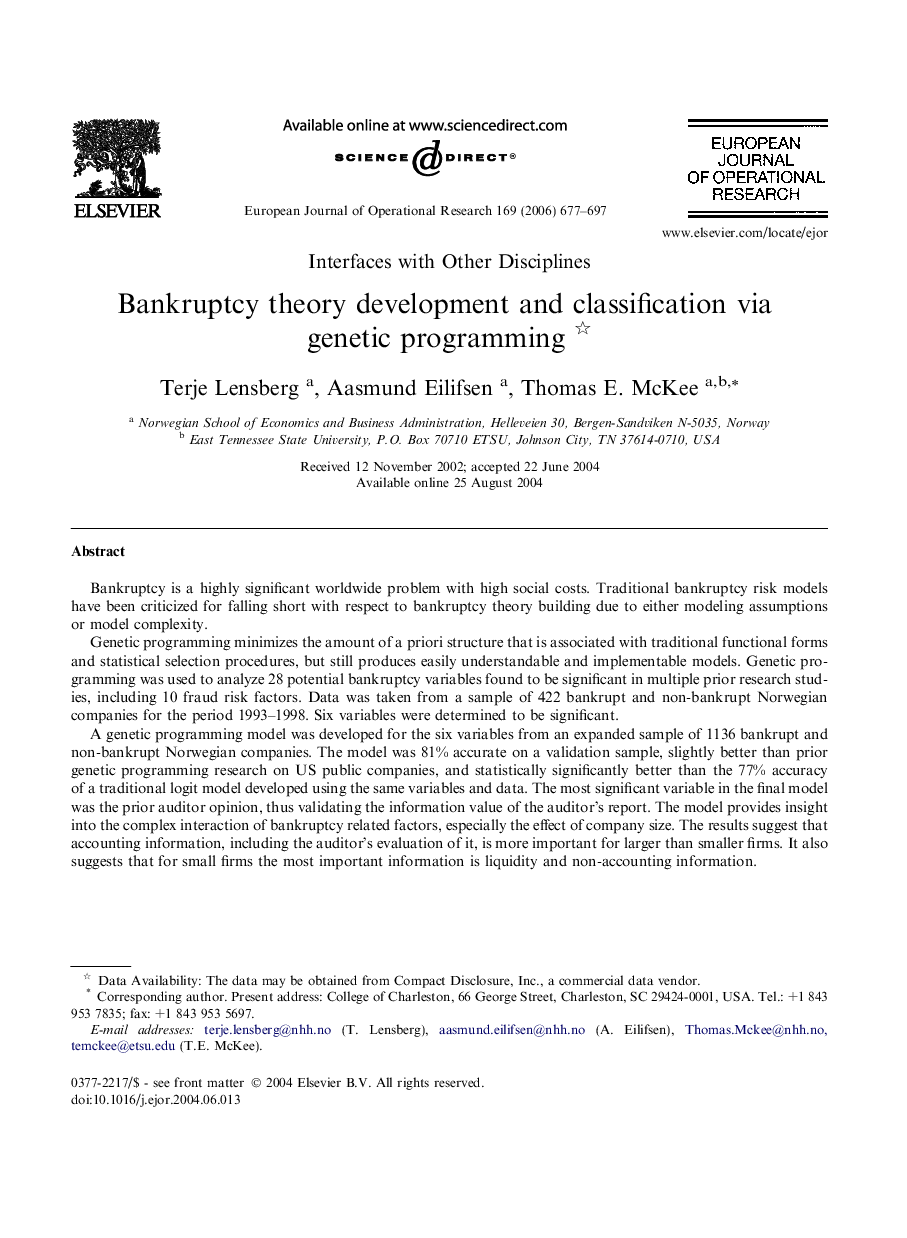| Article ID | Journal | Published Year | Pages | File Type |
|---|---|---|---|---|
| 482786 | European Journal of Operational Research | 2006 | 21 Pages |
Bankruptcy is a highly significant worldwide problem with high social costs. Traditional bankruptcy risk models have been criticized for falling short with respect to bankruptcy theory building due to either modeling assumptions or model complexity.Genetic programming minimizes the amount of a priori structure that is associated with traditional functional forms and statistical selection procedures, but still produces easily understandable and implementable models. Genetic programming was used to analyze 28 potential bankruptcy variables found to be significant in multiple prior research studies, including 10 fraud risk factors. Data was taken from a sample of 422 bankrupt and non-bankrupt Norwegian companies for the period 1993–1998. Six variables were determined to be significant.A genetic programming model was developed for the six variables from an expanded sample of 1136 bankrupt and non-bankrupt Norwegian companies. The model was 81% accurate on a validation sample, slightly better than prior genetic programming research on US public companies, and statistically significantly better than the 77% accuracy of a traditional logit model developed using the same variables and data. The most significant variable in the final model was the prior auditor opinion, thus validating the information value of the auditor’s report. The model provides insight into the complex interaction of bankruptcy related factors, especially the effect of company size. The results suggest that accounting information, including the auditor’s evaluation of it, is more important for larger than smaller firms. It also suggests that for small firms the most important information is liquidity and non-accounting information.The genetic programming model relationships developed in this study also support prior bankruptcy research, including the finding that company size decreases bankruptcy risk when profits are positive. It also confirms that very high profit levels are associated with increased bankruptcy risk even for large companies an association that may be reflecting the potential for management to be “Cooking the Books”.
